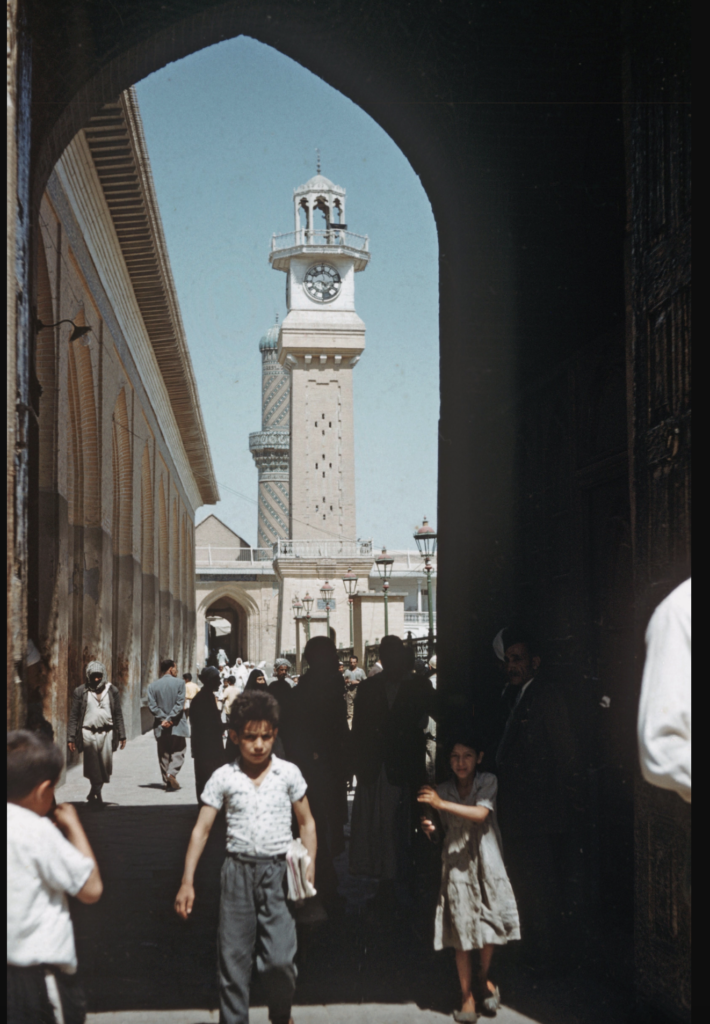City of Light: How Baghdad Became a Center of Knowledge

Baghdad – Photo source: Wikimedia Commons
By: Rania Basria / Arab America Contributing Writer
Baghdad, modern Iraq’s capital, exemplifies human creativity, perseverance, and cultural richness. During the Abbasid Caliphate, 750-1258 CE, this city became a beacon of intellectual and scientific progress, gaining the name “City of Light.” Arab America contributing writer, Rania Basria, analyzes how the House of Wisdom, Bayt al-Hikma, played a vital role in this shift, ushering in a golden age of learning, invention, and cultural exchange.
The Rise of Baghdad
Baghdad, contemporary Iraq’s capital, was once at the center of a golden age of knowledge and creativity known as the Abbasid Caliphate (750-1258 CE). Known as the “City of Light,” it rose to prominence as a global intellectual powerhouse, thanks in large part to the establishment of the House of Wisdom. Caliph al-Mansur founded Baghdad in 762 CE, and it was ideally located along major trade routes, resulting in a melting pot of cultures and ideas. Its circular form, with the caliphal palace and mosque in the center, represented the Abbasid Empire’s function as both a political and spiritual hub, spanning North Africa and Central Asia.
The House of Wisdom: A Beacon of Learning
The Abbasid Caliphs, especially Harun al-Rashid and his son al-Ma’mun, promoted a culture of scholarship and intellectual inquiry. The House of Wisdom, which began as a repository for ancient manuscripts, has since evolved into a pioneering academic institution. It became the epicenter of a thriving translation effort that introduced knowledge from Greek, Persian, and Indian cultures to the Arabic language. Texts by great thinkers such as Plato, Aristotle, and Ptolemy were not only preserved, but also critically scrutinized and elaborated upon. This confluence of traditional wisdom and innovative investigation laid the framework for future discoveries.
Scientific and Cultural Achievements
Baghdad’s intellectuals achieved significant advances in a variety of subjects. Al-Khwarizmi and other mathematicians created algebra, the decimal system, and algorithms that are still used in modern mathematics. Astronomers improved theories of planetary motion and built observatories to investigate celestial occurrences. Physicians like Al-Razi (Rhazes) and Ibn Sina (Avicenna) transformed medicine with extensive encyclopedias and clinical methods that affected both the Islamic world and Europe. The city also thrived culturally, creating classics of Arabic literature such as One Thousand and One Nights, which exemplifies the richness of Abbasid culture and the variety of influences that shaped Baghdad.
Baghdad’s golden age was defined by inclusivity. Scholars from varied ethnic and religious origins, including Muslims, Christians, Jews, and Zoroastrians, worked to advance knowledge. This environment of tolerance and cooperation was critical to the city’s intellectual and cultural development.
Baghdad’s importance began to dwindle in the tenth century, as political unrest and economic issues crippled the Abbasid Caliphate. The Mongol invasion in 1258 CE devastated the city, resulting in the loss of the House of Wisdom and its precious manuscripts. This signaled the end of Baghdad’s role as a global intellectual center.
Legacy of the City of Light
Despite its decline, Baghdad’s accomplishments during the Abbasid era had a lasting impact on human culture. The information preserved, synthesized, and expanded by its academics was communicated to Europe, sparking the European Renaissance. The foundations built in Baghdad have greatly influenced fields like medicine, mathematics, and astronomy.
Baghdad’s tale throughout its golden age exemplifies the transformational force of curiosity, openness, and cultural exchange. The “City of Light” continues to inspire as a symbol of what humanity can do when different ideas and viewpoints come together in the pursuit of knowledge.
Check out our blog here!








